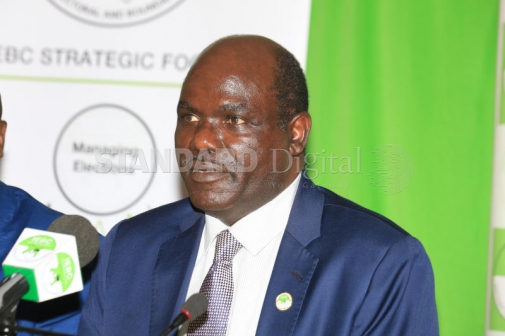×
The Standard e-Paper
Stay Informed, Even Offline

Fear of foul play, conspiracy, caution against courts and bid to cover actions already taken are the key underlying features of electoral law changes proposed by Jubilee administration and opposed by NASA.
An insightful look into the amendments and covert interviews with people involved in their preparation reveal an administration gravely seeking to insulate its anticipated victory from legal ambush.